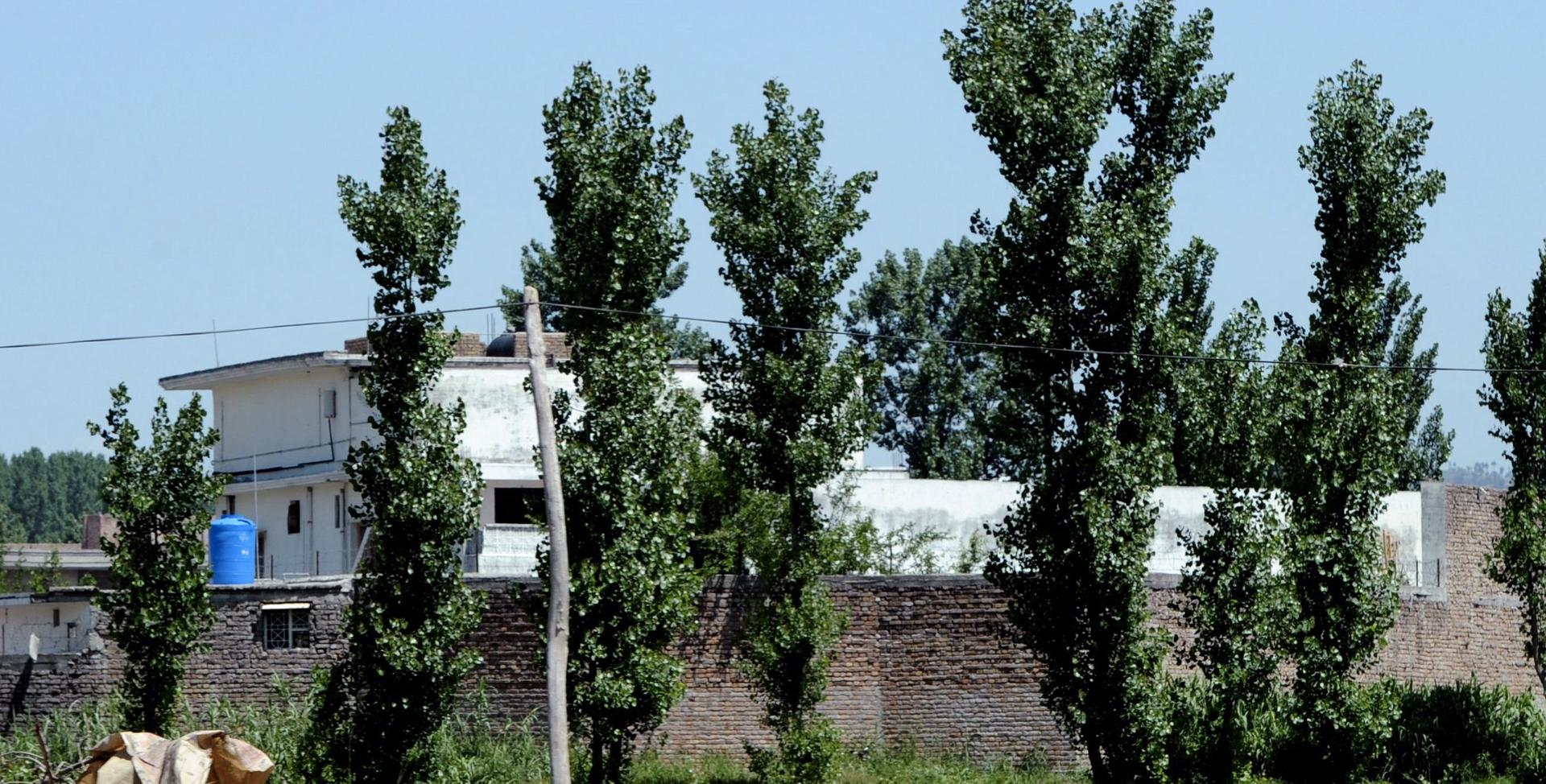Book claims Pakistan played role in bin Laden raid
The compound has been a painful and embarrassing reminder for Pakistan, which was humiliated by the unilateral US attack which killed Bin Laden last year.
ISLAMABAD, Pakistan — The United States coordinated with Pakistan before the raid on Osama bin Laden’s hideout in Abbottabad last year, a new book contends.
That claim contradicts official Obama administration accounts.
“Leading from Behind: The Reluctant President and the Advisors Who Decide for Him,” written by American journalist Richard Miniter, hit stores on Aug. 22.
The book came out just as the Penguin publishing company announced the release next month of another book written by one of the US Navy Seals that participated in the famous mission, which led to the death of the Al Qaeda leader.
In “Leading from Behind,” Miniter, who's reporting has been critized by some media watchdog groups, writes that Pakistan Army Chief Ashfaq Pervez Kayani was briefed by the United States on its plans to kill bin Laden some five months in advance.
Speculation that Pakistan had some advance knowledge of the raid was a topic of vigorous debate in the days and weeks after bin Laden’s death. In Pakistan, that debate continues. Pakistani and CIA officials, however, have always denied they cooperated in any way.
More from GlobalPost: Pakistan army knew about US plans to raid bin Laden hideout
On the scene in Abbottabad in the days after the operation, GlobalPost interviewed residents who said Pakistani security agents had knocked on their doors hours before the raid, telling them to stay inside and turn off their lights. Those accounts appeared to lend credence to the possibility of coordination between at least some elements within the Pakistani security forces and the United States.
Abbottabad is also the home of an elite Pakistani military group, known as the Frontier Force, which has close ties with the US military. The Frontier Force has aided the US military in operations around the world over the last few decades, including in Somalia where they played a role in rescuing US soldiers stranded after Somalis shot down their Black Hawk helicopter. The event was immortalized in the book and subsequent movie, “Black Hawk Down.”
In his book, Miniter claims that a colonel in Pakistan’s powerful spy agency, Inter-Services Intelligence, or ISI, had provided vital help to the CIA in tracing the whereabouts of bin Laden.
Ret. Brig. Gen. Shaukat Qadir, an Islamabad-based security analyst, who was the only Pakistani given official access to documents seized from bin Laden’s compound by the Americans, told a Pakistani television station last week that he also believed the Pakistani army and ISI coordinated with the CIA.
Based on interviews with ISI officials and bin Laden’s family, Qadir said he believes ISI was informed by members of the Taliban about the location of bin Laden in May 2010, and then shared that information with the CIA in August 2010.
“They were Taliban who had informed the ISI about the location of bin Laden, which was later passed on to the CIA,” he said. “It was a time when intelligence cooperation between the two spy agencies was still good.”
Relations between the United States and Pakistan have suffered since the bin Laden raid. Pakistan publicly condemned what it said was a unilateral US military operation inside a country that was supposed to be an ally.
More from GlobalPost: Bin Laden lived near Pakistani forces with US ties
Intelligence officials and security analysts believe that the Pakistani government likely wanted to hide its role in the operation to avoid a backlash from the public, which has long objected to US drone strikes and other CIA operations inside the country.
Analysts say that the Pakistani government has tried to compose a storyline that it is actively working against the United States — an effort aimed at keeping the country’s population from revolting against the political leadership.
Some residents of Abbottabad who have been summoned by a government team tasked with investigating the US operation, known as the Abbottabad Commission, said they have been pressured by intelligence agents to say they didn’t see or hear anything before or after the operation.
Despite all the talk, analysts said there remains no smoking gun that would indicate Pakistan and the United States cooperated before the raid.
“The guessing game is on. One writer comes up with one account, and soon after another writer comes up with a totally different version,” said Maria Sultan, an Islamabad-based security analyst.
“Readers appear to be totally confused as to who they should believe. The guessing game will continue until the Abbottabad Commission makes its findings public.”
We want to hear your feedback so we can keep improving our website, theworld.org. Please fill out this quick survey and let us know your thoughts (your answers will be anonymous). Thanks for your time!
